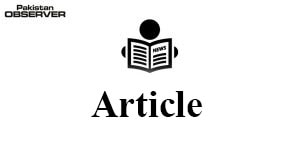Transgender plight in Pakistan
IN Pakistan, gender based favouritism has always been an unhallowed vogue when a man is competed with women, however, transgender, as a third gender is suffering highly discrimination than a woman when they come to the provision of basic human rights.
Transgender people have to confront a host of issues while growing among us.
Firstly, an eunuch is often marginalized by his/her own parents in the home by hating and stigmatizing them even a transgender can’t be viewed an alien creature.
This kind of maltreatment and social rejection make Transgender people’s life isolating as well as they suffer saver mental disorders.
Lack of employment opportunities, the people of this community mostly involve in immoral habits as begging, doing dance performances at private events and offering themselves for sexual services.
Due to security concerns, trans people often go to the care of their head called Guru, who protects them in exchange for a cut their earnings.
Despite security concerns, they are facing various hurdles in accessing fundamental human rights as healthcare, education, employment and religious freedom in society.
Although, Pakistan has fortunately, recognized transgender as a third sex about a couple of years ago as well as they were allowed to obtain identity cards and run elections but they need enough attention of the state to be mainstreamed.
The country total population of trans people estimated in the sixth Census is 10418 but the Trans Action Committee (TAC) claims their total population is above of half million in the country.
Likewise, the Human rights commission reports the population of trans community is quite high than the official data.
Government rarely bless’ transgender with jobs aims to get publicity and media attention but after sometime they are sacked from the jobs.
For instance, Ali Shah Sherazi, a Rawalpindi based transgender was first taken on one year contract job in development and planning sector under the UN but her contract was not further extended.
As well as, Maroya Malik, a Lahore based journalism graduate transgender is a living example as she was appointed as an anchor by Koh-e-Noor TV channel in 2018 and then removed from the job after merely six months.
Similarly, in the health sector too, numerous issues are waiting for the eunuch community.
Ali Shah, a 23 year-old transgender activist succumbed to her injuries in Peshawar hospital after being shoot eight times because the staff could not decide whether to put her in a male or female ward.
In 2018 about two private rooms were allotted to transgender at PIMS Islamabad but later they had to leave these rooms because of insecurity.
KPK is the most risky province for transgender where the people of this unfortunate community are facing numerous threats to their life and honour as insulting, sexual harassment, gang rape and even killing on a daily basis.
Lamenting over the rapid violence against them, the Trans Action Committee (TAC) report cites that about 63 Trans people have been killed, however, more than 170 physically abused in Peshawar, Charsada, Mardan, Swabi, Banu, Swat, Kohat and Nowshehra district between 2015 and 2019.
Qamar Nasim a human rights activist expressed great concern over the killing and abusing of a large number of Trans people and said that a single killer has not been put on death row or sentence to life imprisonment so far by the KPK government.
Fan African Medical Journal (FAMJ) in its 2018 report indicates that 30.2 pc trans people have to offer themselves for commercial sex work, 37.6 pc abuse drugs while 38.6 pc of them think about suicide as well 18.5 pc trans men attempt to suicide in Pakistan.It is time being human beings, we must review our attitude towards this oppressed community by providing all the rights which a common human is enjoying in society.
In the same way, as Muslims, we should follow Islamic teachings in this regard which highly emphasize the provision of all the rights of this brethren even it allows a transgender both he/she to marry of the opposite sex in the case of having visible signs of being male or female.
—The writer is lecturer at degree college Zhob.










